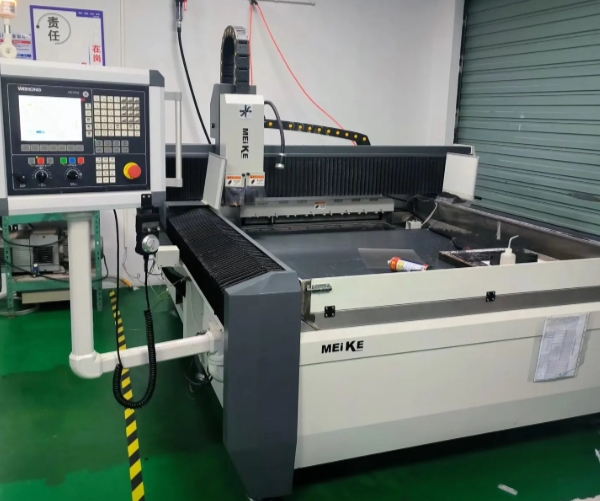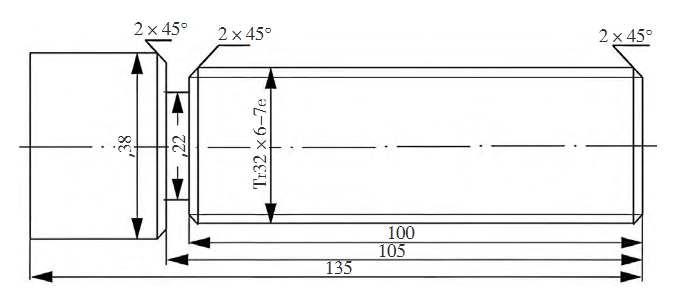Intelligent manufacturing refers to the use of advanced information technology and automation technology (such as the Internet of Things, big data, artificial intelligence, etc.) to carry out a comprehensive digital, intelligent, and flexible transformation of the manufacturing process, to achieve high efficiency, flexibility and personalization of production. This smart manufacturing method not only changes the traditional manufacturing production mode but also plays an important role in optimizing and upgrading the entire industrial chain. It can help enterprises reduce costs, improve production efficiency, and optimize resource use, thereby enhancing overall competitiveness.
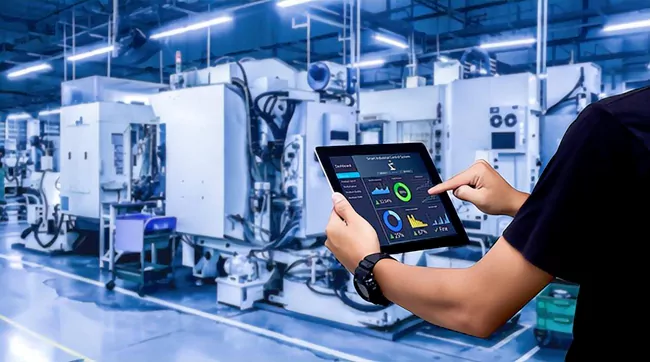
Overview of Intelligent Manufacturing
Intelligent manufacturing, an advanced manufacturing method originating from artificial intelligence research, is a human-machine integrated intelligent system composed of intelligent machines and human experts, which expands, extends and partially replaces the mental labor of human experts in the manufacturing process by carrying out intelligent activities such as analysis and reasoning. Its main goal is to realize the automation, high efficiency, and flexibility of the manufacturing process using digitalization, intelligence, and networking.
Intelligent manufacturing technology, based on modern information technology, integrates the features of digitalization, intelligence, and networking to build a comprehensive manufacturing technology system. This technology system covers a wide range of production management systems, automation equipment information technology, and other fields, and its core objective is to improve production efficiency, optimize product quality, and enhance production flexibility.
Intelligent production management system is an important part of intelligent manufacturing, including planning scheduling, production execution, logistics management, and other aspects. It can realize the visualization, transparency, and optimal scheduling of the production process through information technology. Robotics plays an important role in intelligent manufacturing: including industrial robots and service robots. They can realize automated operation and flexible production on the production line, greatly improving production efficiency. In addition, IoT technology is also an important support for smart manufacturing. Through sensors and data collection devices, real-time monitoring, connection, and collection of equipment products and logistics information can be realized.
The background and significance of intelligent manufacturing
1. Background of intelligent manufacturing
The rise of intelligent manufacturing stems from the rise of the industrial Internet, which promotes the digitalization, networking, and intelligence of production with the help of new-generation information technologies such as the Internet of Things, cloud computing, and big data. Through big data analysis and intelligent technology, the industrial Internet has realized the intelligent optimization of the production process and promoted the rapid development of intelligent manufacturing. At the same time, governments have incorporated intelligent manufacturing into national strategies, such as “Germany Industry 4.0”, “Made in China 2025” and the U.S. “Industrial Intelligence” strategy, further promoting progress in this field. Further, promotes the progress of this field.
The demand for transformation and upgrading of the manufacturing industry has also prompted intelligent manufacturing to become an important direction for solving the problems of rising costs, low efficiency, and weak growth faced by the traditional manufacturing industry. At the same time, innovations in artificial intelligence, robotics, the Internet of Things, big data analytics, and other technologies have provided strong technical support for smart manufacturing. In addition, consumers’ increasing demand for personalized customization makes it difficult for the traditional manufacturing model to meet this demand, and smart manufacturing has thus become an important means of achieving flexible production.
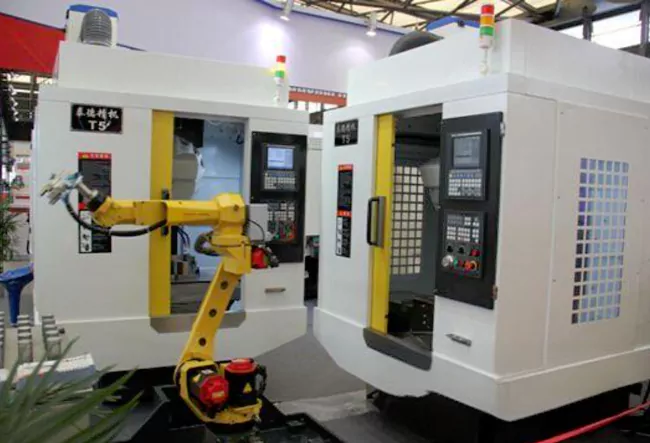
2. The impact of smart manufacturing on economic development and social change
The rise of intelligent manufacturing has had a far-reaching impact on the economy and society, specifically reflected in the following aspects:
(1) Improve production efficiency and reduce costs
Through intelligent equipment and systems, intelligent manufacturing realizes the automation, digitalization, and intelligence of production, reduces manual intervention, and significantly improves production efficiency. Automated process control reduces downtime and waiting time, accelerates the production process, and significantly reduces production costs.
(2) Improve product quality and consistency
Intelligent manufacturing utilizes real-time data analysis and intelligent algorithms to monitor every aspect of the production process, adjust product quality in real-time, and reduce quality problems caused by human error and machine failures. Through timely detection and correction of problems, it improves product consistency and stability, promotes the transformation and upgrading of the manufacturing industry, and enhances the international competitiveness of the national manufacturing industry.
(3) Creating job opportunities and upgrading labor skills
Intelligent manufacturing has promoted the emergence of new jobs and increased the skill requirements for workers, promoting the optimal allocation of labor resources. This not only improves work efficiency but also promotes the improvement of the overall skill level of society.
(4) Promote the change of production mode and business mode
Intelligent manufacturing makes production more flexible, enabling it to quickly respond to customers’ individualized needs and adjust production lines. This flexibility helps enterprises adapt quickly to the changing market environment and promotes the reconstruction of the industrial chain and the enhancement of the value chain. Through the use of big data and artificial intelligence, enterprises are also able to obtain more accurate production data, helping management make more informed decisions.
(5) Promoting sustainable development and green manufacturing
Intelligent manufacturing promotes green manufacturing by optimizing production processes and equipment, improving resource utilization efficiency, reducing energy and raw material consumption, and reducing negative impacts on the environment. This is of great significance for industrial upgrading, sustainable development, and enhancing national economic strength.
Overall, smart manufacturing not only changes the production mode of enterprises and industries but also brings significant competitive advantages and sustainable growth potential to the national economy.
Challenges in the development of smart manufacturing
1. Interoperability and Standardization Issues
Interoperability between different manufacturing equipment and systems is a major challenge for smart manufacturing. Data formats and communication protocols between devices have not yet been standardized, and companies need to find common standards and interfaces to ensure seamless connectivity and collaboration among various devices and systems. Achieving this goal requires extensive testing and constant technology updates, which is both time-consuming and labor-intensive.
2. Big Data Management and Utilization
The large amount of real-time data generated by smart manufacturing requires efficient management, storage, analysis, and utilization. How to extract valuable information from massive data and make decisions in real-time is one of the biggest technical challenges currently facing.
3. Talent training and management
Intelligent manufacturing, as an emerging field, has not yet formed a perfect talent introduction mechanism and management system. The challenge for enterprises is how to cultivate and attract professional talents and effectively motivate them to serve enterprise development in the long term.
4. Organizational Structure and Process Reconstruction
The technological changes brought by intelligent manufacturing may impact the existing culture, values, and employee behavior of enterprises. To adapt to the new production model, companies need to redesign their organizational structure and production processes, which often take a long time and involve extensive employee training and cultural adaptation.
5. Data Security and Privacy Protection
Smart manufacturing systems involve the connection of a large number of devices and databases, which poses a major challenge in how to safeguard data security and customer privacy. As smart manufacturing relies on technologies such as IoT and cloud computing, external security threats to the system (such as cyber-attacks and malware) cannot be ignored. At the same time, how to protect equipment from damage, break-ins and security incidents is an issue that organizations must address.
The advancement of smart manufacturing faces challenges in technology, management, data security, and other aspects. Enterprises need to formulate comprehensive planning and control measures in the promotion process and strengthen technological research lopment and innovation to ensure that they can cope with these complex challenges, to realize the long-term development of smart manufacturing.
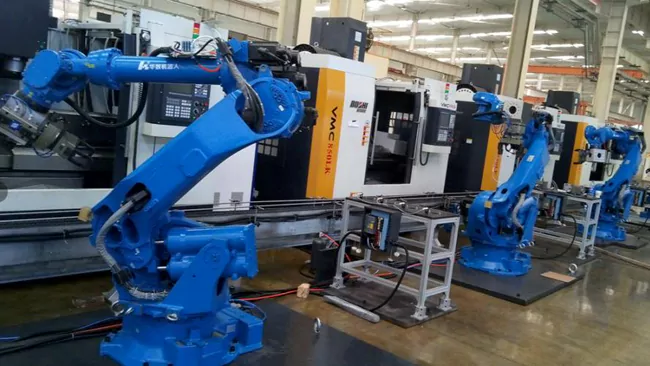
The impact and outlook of intelligent manufacturing on the future manufacturing industry
1. Impact
Smart manufacturing will profoundly change the way manufacturing operates in the future. First of all, through data analysis and intelligent algorithms, smart manufacturing optimizes the allocation of resources and achieves fine management of the production process. This not only helps companies save resources and reduce costs but also improves overall production efficiency. In addition, intelligent manufacturing can promote intelligent supply chain management and enhance the efficiency and transparency of raw material procurement, production scheduling, warehousing, and logistics through digital means, thus comprehensively improving the operational effectiveness of the supply chain. Ultimately, these changes will accelerate the digital transformation of the manufacturing industry, promote the transformation of enterprises in the direction of intelligence, digitalization, and flexibilization, and enhance the competitiveness and innovation of the entire industry.
2. Outlook
Intelligent manufacturing will lead the future manufacturing industry in the direction of more efficient, flexible, and sustainable development. First of all, the integration of intelligent manufacturing and industrial Internet will be the key to future development. As technology advances, production equipment, processes, products, and supply chains will become more informalized, digitized, and interconnected, which will provide strong technical support for the transformation of the manufacturing industry. Secondly, advanced technologies such as data analytics, artificial intelligence, and big data will further penetrate the manufacturing industry, promoting its transformation to intelligence and digitalization, and improving the quality, flexibility, and efficiency of production.
Conclusion
Intelligent manufacturing, as a product of the deep integration of a new generation of information technology and manufacturing, has the advantages of high automation, flexibility, and customizability. Through the application of advanced information technology and manufacturing technology, intelligent manufacturing not only improves production efficiency, but also optimizes the production process, promotes the improvement of product quality and customer satisfaction, and promotes the transformation and upgrading of the manufacturing industry.
Intelligent manufacturing has a broad application prospect in the future manufacturing industry. It can help enterprises realize an efficient, flexible, and sustainable manufacturing model and enhance competitiveness in the global market. However, the promotion and application of smart manufacturing still face certain challenges. These challenges include the need to enhance data security and personal privacy protection, as well as to address the shortage of talent and promote talent training and education reform.
To address these challenges, relevant stakeholders need to increase investment and support, especially in technology R&D, application promotion, and policy guidance. Governments and enterprises should work together to actively promote the development of smart manufacturing to adapt to the fast-changing competitive market environment and realize the sustainable development of the manufacturing industry.


